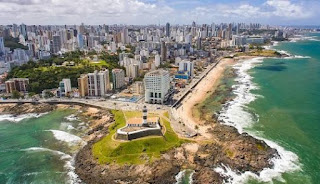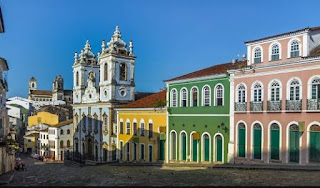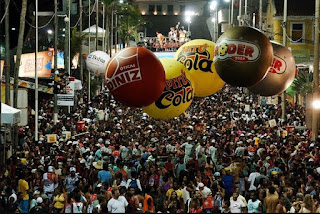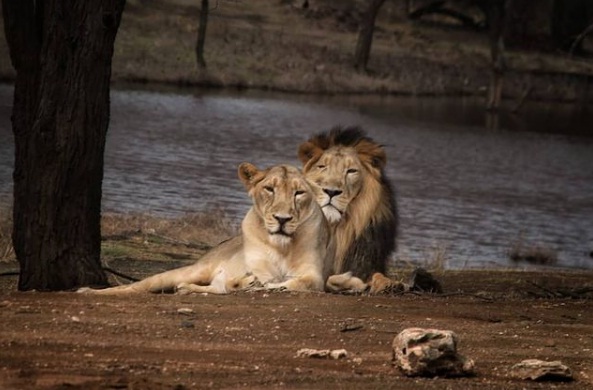Bahia
State of Brazil:
Bahia is one of the 26 states of Brazil, located in the northeastern part of the country. It is known for its rich cultural heritage, Afro-Brazilian influences, stunning coastline, and vibrant festivals. Salvador, the capital city of Bahia, is renowned for its colonial architecture, lively music scene, and UNESCO-listed historic center.
History of Bahia:
Colonial Era: Bahia played a crucial role in the colonial history of Brazil. It was one of the first areas explored by the Portuguese in the early 16th century. The city of Salvador, founded in 1549, served as the capital of the Portuguese colony and later the capital of Brazil until 1763.
African Influence: Bahia has a significant Afro-Brazilian population, resulting from the transatlantic slave trade. Enslaved Africans brought to Brazil contributed to the cultural richness of Bahia, influencing music, dance, cuisine, and religious practices, such as Candomblé.
Independence: Bahia was a center of resistance against Portuguese rule during Brazil's struggle for independence. The Bahian Rebellions, including the Revolt of the Alfaiates and the Sabinada, were pivotal events in the fight for Brazil's autonomy, culminating in the country's independence in 1822.
Modern Era: In the 20th century, Bahia emerged as a hub of cultural expression, with Salvador becoming known for its vibrant Carnival celebrations, which draw millions of visitors each year. The state continues to thrive economically, culturally, and socially, with a diverse population representing various ethnicities and traditions.
Attractions in Bahia:
Historic Center of Salvador: The Pelourinho district in Salvador is a UNESCO World Heritage Site renowned for its well-preserved colonial architecture, colorful buildings, and cobblestone streets. Visitors can explore historic churches, museums, and cultural centers showcasing Bahia's rich heritage.
Praia do Forte: Located north of Salvador, Praia do Forte is a charming coastal town famous for its beautiful beaches, natural pools, and the Tamar Project, dedicated to the conservation of sea turtles.
Chapada Diamantina National Park: This vast national park in the interior of Bahia offers breathtaking landscapes, including waterfalls, caves, canyons, and table-top mountains. It's a paradise for outdoor enthusiasts, with opportunities for hiking, trekking, and wildlife spotting.
Itaparica Island: Accessible by ferry from Salvador, Itaparica Island is a popular destination for beachgoers, offering pristine beaches, clear waters, and opportunities for water sports such as snorkeling and diving.
Candomblé Ceremonies: Bahia is renowned for its Afro-Brazilian religious traditions, particularly Candomblé. Visitors can experience Candomblé ceremonies, which involve music, dance, and spiritual rituals, providing insight into Bahia's cultural identity.
Cuisine of Bahia:
Moqueca: A traditional Brazilian dish originating from Bahia, moqueca is a flavorful seafood stew made with fish or shrimp, coconut milk, tomatoes, onions, peppers, and spices. It's typically served with rice and farofa (toasted cassava flour).
Acarajé: This iconic street food of Bahia consists of deep-fried balls of black-eyed pea dough filled with spicy shrimp and topped with vatapá (a creamy paste made from bread, shrimp, coconut milk, and spices).
Vatapá: Often served as a side dish or used as a filling for acarajé, vatapá is a rich and creamy Afro-Brazilian sauce made from bread, shrimp, coconut milk, ground nuts, and palm oil, flavored with spices such as ginger and coriander.
Caruru: Another popular dish in Bahia, caruru is a flavorful okra stew made with shrimp, onions, tomatoes, palm oil, and spices. It's often served as a side dish alongside traditional Bahian meals.
Vusit Also_Jemaa el-Fnaa | Jemaa el-Fnaa, Marrakech
Caipirinha: While not exclusive to Bahia, the caipirinha is Brazil's national cocktail and is widely enjoyed throughout the country. Made with cachaça (a distilled spirit made from sugarcane), lime, sugar, and ice, it's a refreshing drink perfect for sipping on a hot day in Bahia.
Festivals and Events:
Carnival: Salvador hosts one of the largest and most vibrant Carnival celebrations in the world. The streets come alive with music, dance, and elaborate parades featuring samba bands, Afro-Brazilian blocos, and colorful costumes.
Lavagem do Bonfim: This annual festival, held in January, is a religious and cultural celebration in Salvador dedicated to Senhor do Bonfim, the patron saint of Bahia. It involves a procession from the city center to the Bonfim Church, where participants wash the church steps with scented water as a symbolic cleansing ritual.
Festa de Yemanjá: In February, Bahians honor Yemanjá, the goddess of the sea, with offerings of flowers, candles, and gifts placed in small boats and set adrift on the ocean. The festival culminates in a colorful procession to the waterfront in Salvador, where devotees pay homage to Yemanjá.
How to Reach:
By Air: The easiest way to reach Bahia, particularly Salvador, is by flying into Deputado Luís Eduardo Magalhães International Airport (Salvador Airport). The airport serves domestic and international flights, connecting Bahia to major cities in Brazil and other countries.
By Road: Bahia is accessible by road via the Brazilian highway network. Several highways connect Bahia to neighboring states and regions. Bus services operated by various companies offer transportation to cities and towns within Bahia as well as connections to other parts of Brazil.
By Sea: Bahia's coastal location makes it accessible by sea, particularly for cruise ships. Salvador is a popular port of call for cruise itineraries in South America, with cruise terminals accommodating large vessels.
By Rail: While rail transportation in Brazil is not as extensive as other modes of transportation, there are some rail routes connecting Bahia to other regions. However, rail travel within Bahia itself may be limited, and it's not the most common option for reaching the state.






0 Comments